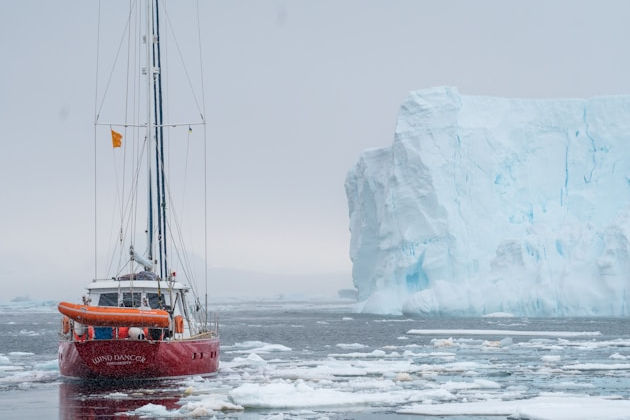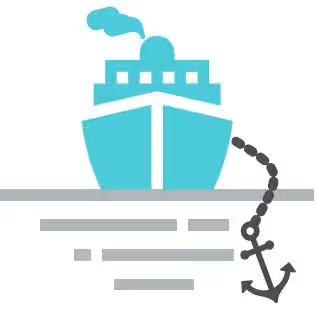Learn how to obtain sailing qualifications and the prestigious Yachtmaster Certificate. Perfect for aspiring sailors aiming to advance their yachting expertise.
For the moment at least, there is no legal requirement for anyone in the UK to undergo training before taking a boat out on their own, though in some other EU countries, skippers are required to hold a certificate of competence.
That said, every skipper is legally responsible not just for the safety of their crew, but the actions they take afloat, so it makes good sense for everyone in the family to undergo some formal training.
The Royal Yachting Association (RYA) has a syllabus of courses from the introductory Level 1 for complete novices through to Yachtmaster Offshore and Ocean certification which then allow you to hold an International Certificate of Competence (ICC).
Cruising courses
Start Yachting. A short introduction to sailing for complete beginners.
| Pre-course experience | None |
| Assumed knowledge | None |
| Minimum duration | 2 days |
| Minimum age | None |
| Course content | The yacht, rope work, underway, rules of the road, man overboard recovery, clothing and equipment, emergency equipment and precautions, meteorology |
| Ability after the course | Basic knowledge of yachting |
By the end of the course you will have experienced steering a yacht, sail handling, rope work and be aware of safety on board.
Competent Crew
This course is for beginners and those who would like to become active crew members rather than just passengers.
Experience living on board and really get to know the boat. Virtually all the course is hands on. By the end of the course you will be able to steer, handle sails, keep a lookout, row a dinghy and assist in all the day to day duties on board.
| Pre-course experience | None |
| Assumed knowledge | None |
| Minimum duration | 5 days. Often run over 3 weekends or 3 days plus a weekend. If you have done the Start Yachting course, this course can be completed in 3 or 4 days |
| Minimum age | None |
| Course content | Knowledge of sea terms and parts of a boat, her rigging and sails, sail handling, ropework, fire precautions and fighting, personal safety equipment, meteorology, seasickness, helmsmanship, general duties, manners and customs, rules of the road, dinghies |
| Ability after the course | Able to steer, handle sails, keep a lookout, row a dinghy and assist in all the day to day routines |
You should also have visited some interesting places and had an enjoyable holiday.
Day Skipper. A course for aspiring skippers with some experience and basic navigation and sailing skills. Learn to skipper a short passage with the instructor on hand to give advice and encouragement and ensure your safety.
| Pre-course experience | 5 days, 100 miles, 4 night hours on board a sailing yacht |
| Assumed knowledge | Basic navigation and helmsmanship. It is recommended you attend the Day Skipper shorebased course beforehand |
| Minimum duration | 5 days, 3 weekends or 3 days plus 2 days |
| Minimum age | 16 |
| Course content | Preparation for sea, deck work, navigation, pilotage, meteorology, rules of the road, maintenance and repair work, engines, victualling, emergency situations, yacht handling under power, yacht handling under sail, passage making, night cruising |
Experience being in charge, taking credit when everything goes well and being responsible when it doesn’t.
Yachtmaster
Unlike other courses in the cruising programme, there is no formal training to complete to become a Yachtmaster. Instead, provided that you have sufficient experience and sea time, you can put yourself forward for an exam to test your skills and knowledge. Some sailing schools run a combined training course and examination.
Yachtmaster Coastal
The Yachtmaster Coastal course provides the knowledge to skipper a yacht on coastal cruises, but does not necessarily give the experience needed to undertake longer passages. The exam will include an assessment of your skippering skills, boat handling, general seamanship, navigation, safety awareness and knowledge of the IRPCS (collision regulations), meteorology and signals.

Source: unsplash.com
Candidates will be set tasks to demonstrate their ability and may also be asked questions on any part of the syllabus for all practical and shore-based courses up to Yachtmaster Coastal level.
Yachtmaster Coastal exam pre-requisites
A short introduction to sailing for complete beginners. By the end of the course you will have experienced steering a yacht, sail handling, rope work and be aware of safety on board.
| Minimum seatime | 30 days, 2 days as skipper, 800 miles, 12 night hours (if you hold the Coastal Skipper course certificate this is reduced to 20 days, 2 days as skipper, 400 miles, 12 night hours). Half the qualifying seatime must be conducted in tidal waters |
| Form of exam | Practical |
| Certification required | A restricted (VHF only) Radio Operators Certificate or a GMDSS Short Range Certificate or higher grade of marine radio certificate. A valid first aid certificate (first aid qualifications held by Police, Fire and Armed Services are acceptable) |
| Minimum exam duration | 6-10 hours for 1 candidate, 8-14 hours for 2 candidates |
| Minimum age | 17 |
The yacht used must be between 7 m (23 ft) and 24 m (78 ft) LOA and be in sound, seaworthy condition, equipped with an up-to-date set of charts and navigational publications, and be efficiently crewed. The examiner will not take part in the management of the boat during the exam.
Yachtmaster Offshore. The Yachtmaster Offshore is competent to skipper a cruising yacht on any passage during which the yacht is no more than 150 miles from harbour. There is no formal training course leading up to the exam. Some sailing schools run a combined training course and examination.
Read also: How to Choose the Perfect Sailboat: Tips on Selection, Ownership, and Alternatives
Yachtmaster Offshore exam pre-requisites. The exam will include an assessment of your skippering skills, boat handling, general seamanship, navigation, safety awareness and knowledge of the IRPCS, meteorology and signals.
| Minimum seatime | 50 days, 2 500 miles including at least 5 passages over 60 miles measured along the rhumb line from the port of departure to the destination, acting as skipper for at least two of these passages and including two which have involved overnight passages. 5 days experience as skipper. At least half of the mileage and passages must be in tidal waters. All qualifying seatime must be within 10 years prior to the exam |
| Form of exam | Practical |
| Certification required | A restricted (VHF only) Radio Operators Certificate or a GMDSS Short Range Certificate or higher grade of marine radio certificate. A valid first aid certificate |
| Minimum exam duration | 8-12 hours for 1 candidate, 10-18 hours for 2 candidates. No more than two candidates can be examined in 24 hours and no more than four candidates can be examined in one 2 day session |
| Minimum age | 18 |
Yachtmaster Ocean. A person holding a Yachtmaster Ocean qualification is experienced and competent to skipper a yacht on passages of any length in all parts of the world. The exam is an oral and written test of your knowledge of ocean passage making including planning, navigation, worldwide meteorology, crew management, yacht preparation, maintenance and repairs. You will also be questioned on your sights taken at sea during an ocean passage.
Yachtmaster Ocean exam. The exam assesses your skippering skills, boat handling, general seamanship, navigation, safety awareness and knowledge of the IRPCS, meteorology and signals.
| Minimum sea time | Ocean passage as skipper or watch captain/mate. You must have been fully involved in the planning of the passage, including selection of the route, the navigational plan, checking the material condition of the yacht and her equipment, storing spare gear, water and victuals and organising the watch-keeping routine; during the passage a minimum non-stop distance of 600 miles must have been run by the log, the yacht must have been at sea continuously for at least 96 hours and the yacht must have been more than 50 miles from land while sailing a distance of at least 200 miles. All qualifying sea time must be within 10 years prior to the exam |
| Form of exam | Oral and written assessment of sights taken at sea. If you hold the Yachtmaster Ocean shore based certificate you are exempt from the written assessment |
| Certification required | Hold a DoT Yachtmaster Coastal Certificate issued prior to 1973 or an RYA/MCA Yachtmaster Offshore Certificate of Competence. An RYA/MCA Coastal Skipper Certiicate does not qualify. A restricted (VHF only) Radio Operators Certificate or a GMDSS Short Range Certicate or higher grade of marine radio certficate. A valid first aid certificate (first aid qualifications held by Police. Fire and Armed Services are acceptable) |
| Minimum exam duration | Approximately 1,5 hours |
The Oral
The candidate must produce:
- A narrative account of the planning and execution of the qualifying passage.
- Navigational records, completed on board a yacht on passages, out of sight of land showing that the candidate has navigated the yacht without the use of electronic navigational aids.
- The records must include: planning, reduction and plotting of a sun run meridian altitude sight and a compass check carried out using the bearing of the sun, moon, a star or planet.
- During the oral test, the candidate will be called on to answer questions on any aspects of ocean passage making, including passage planning, astro navigation, worldwide meteorology, crew management, yacht preparation, maintenance and repairs.
Written
The written exam will include questions on star sight planning and reduction together with worldwide meteorology. Candidates who hold the RYA Yachtmaster Ocean Shorebased certificate, Royal Navy Ocean Navigation Certificate or a DoT Certificate of Competence as a Deck Officer will be exempt from the written examination.
Before the exam you are required to:
- Have completed the required mileage and experience as skipper.
- Hold a VHF Radio Operators License or Short Range Certificate.
- Hold a valid first aid certificate.

